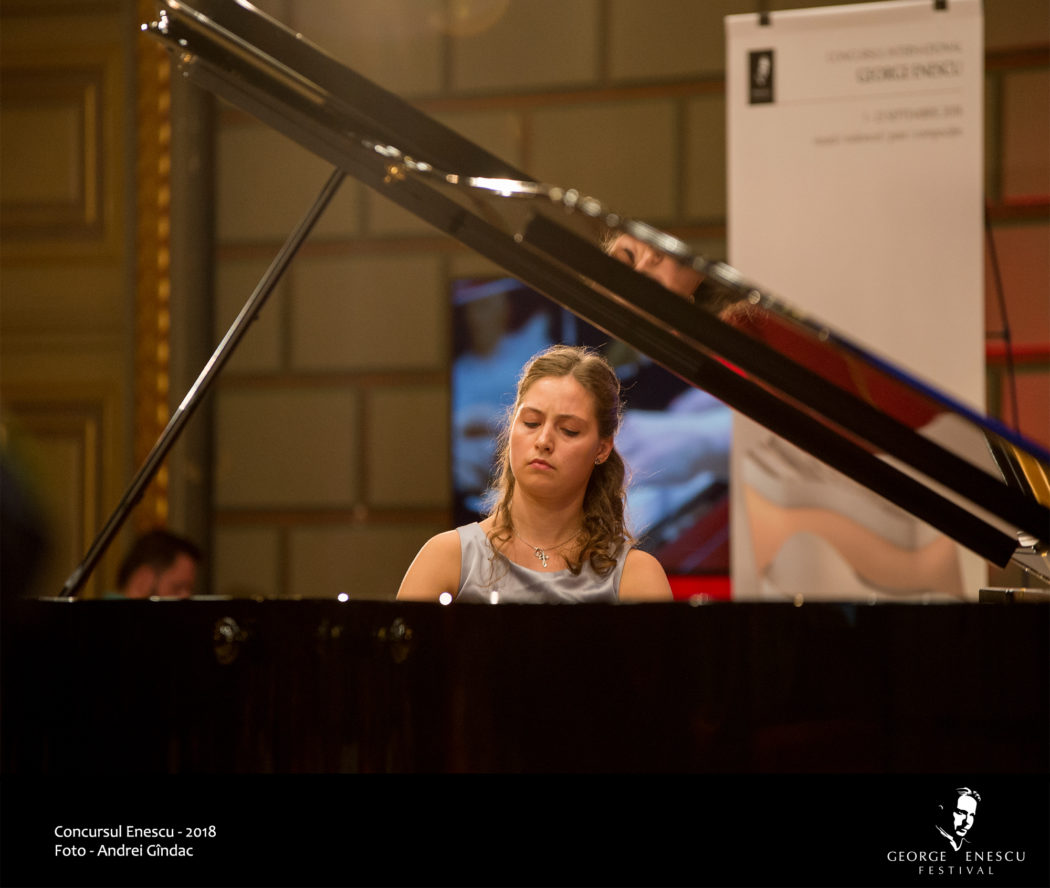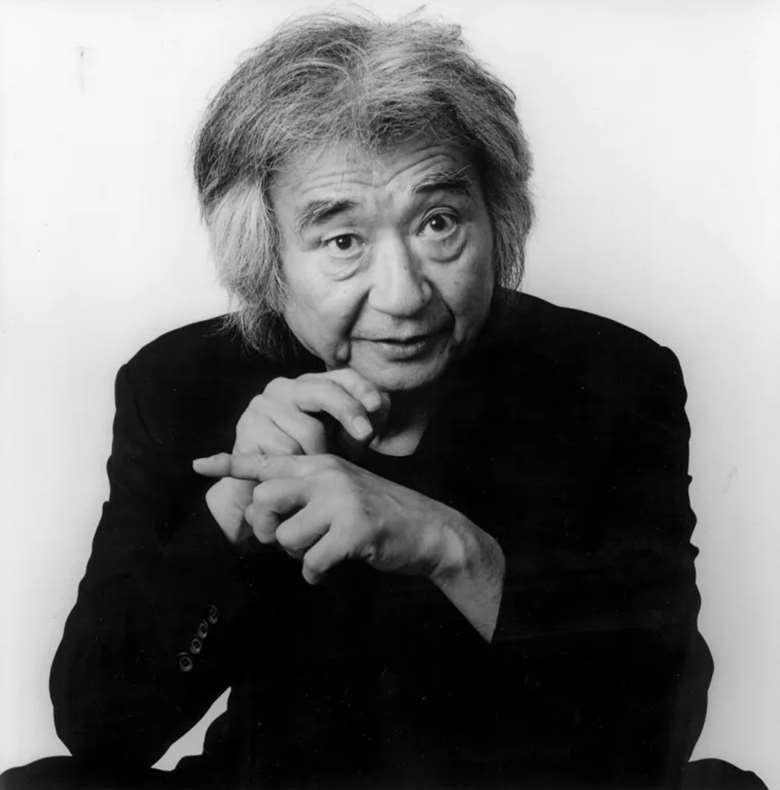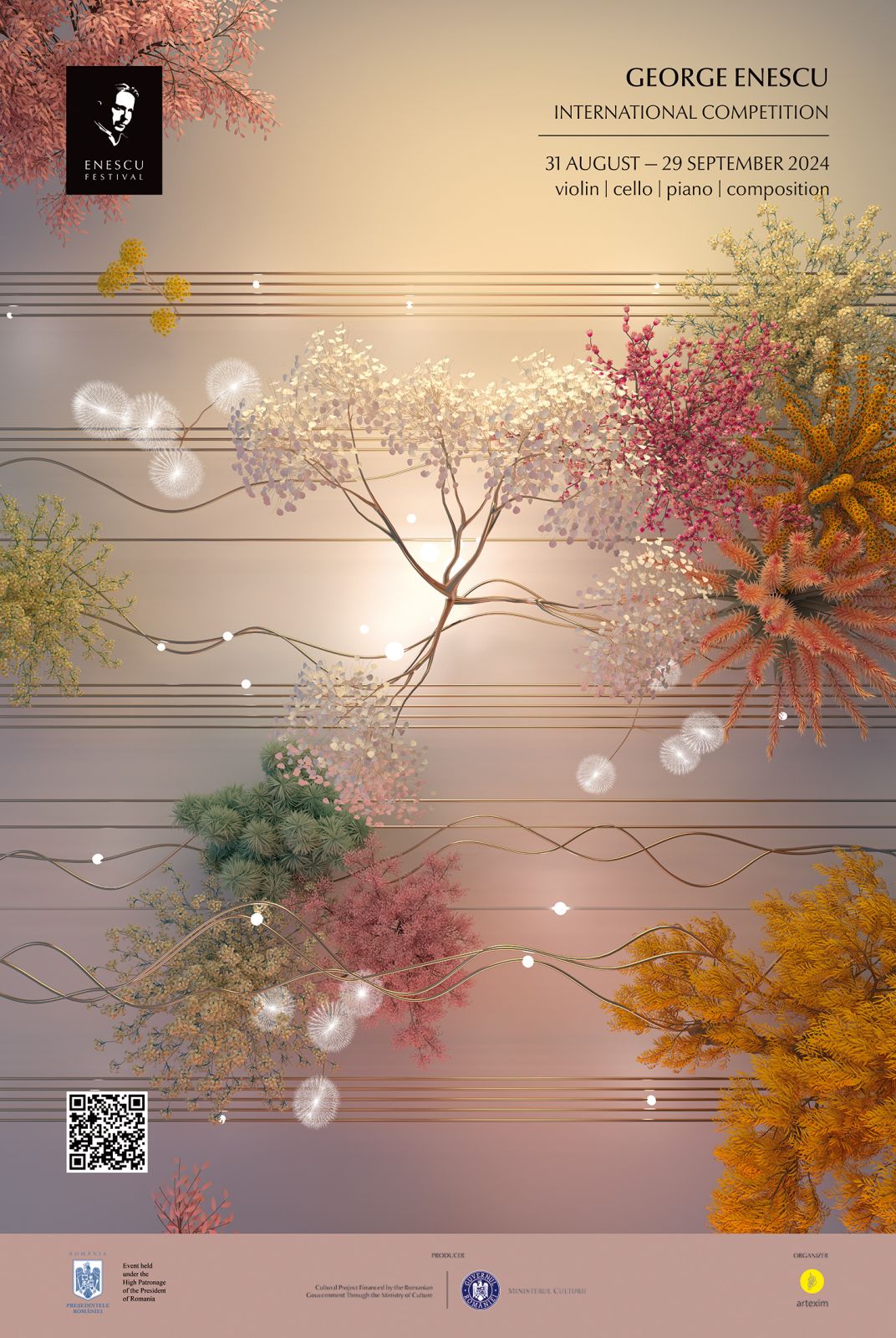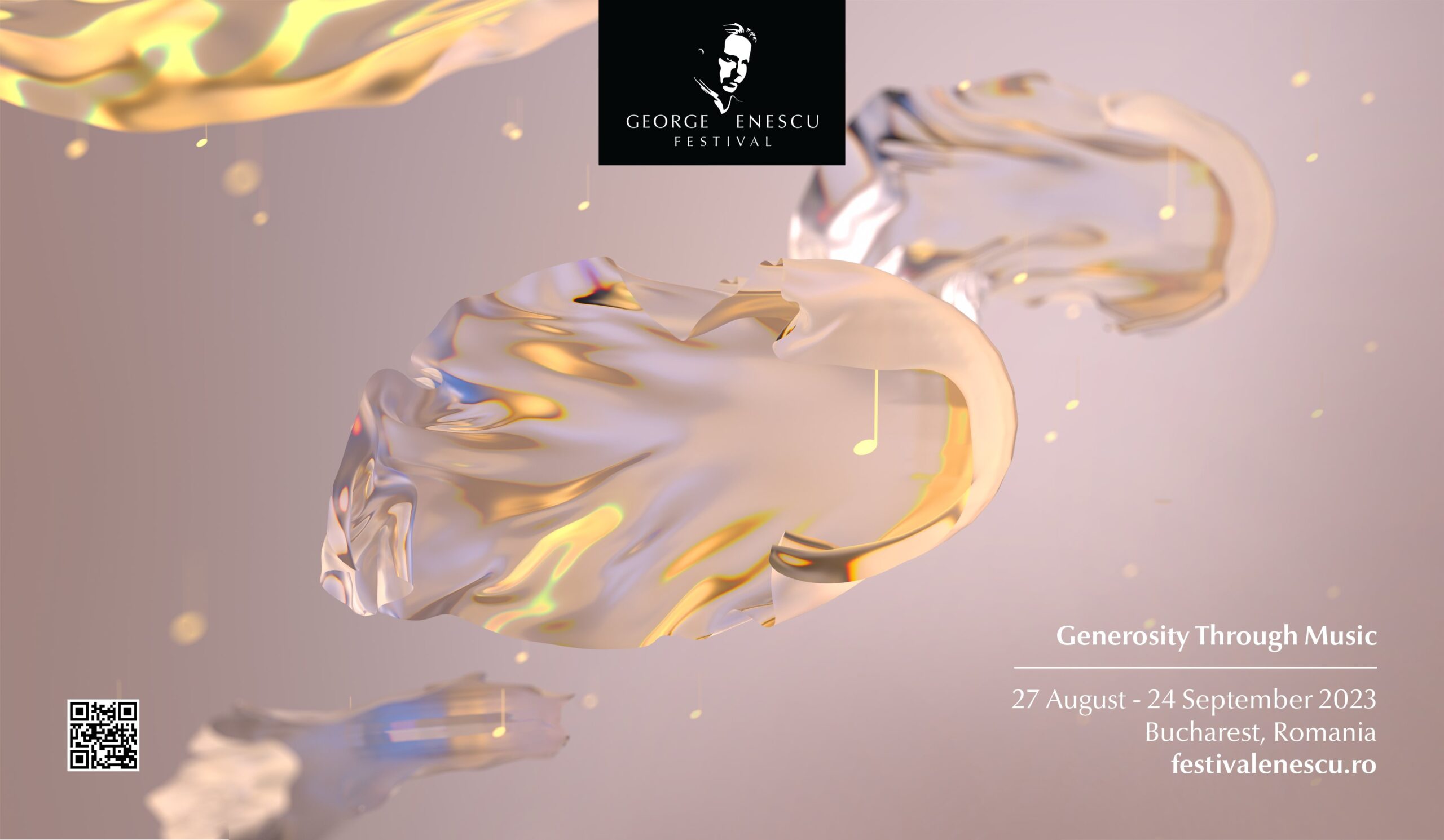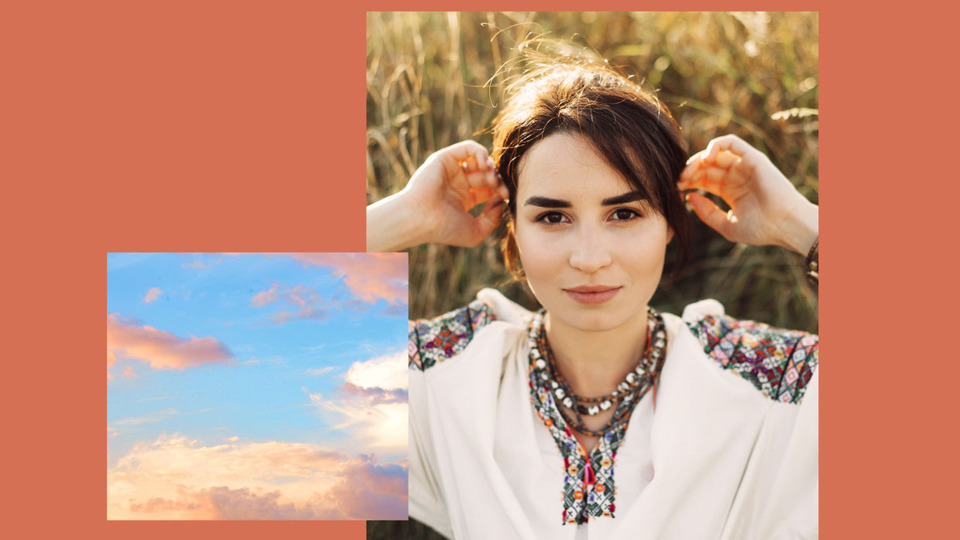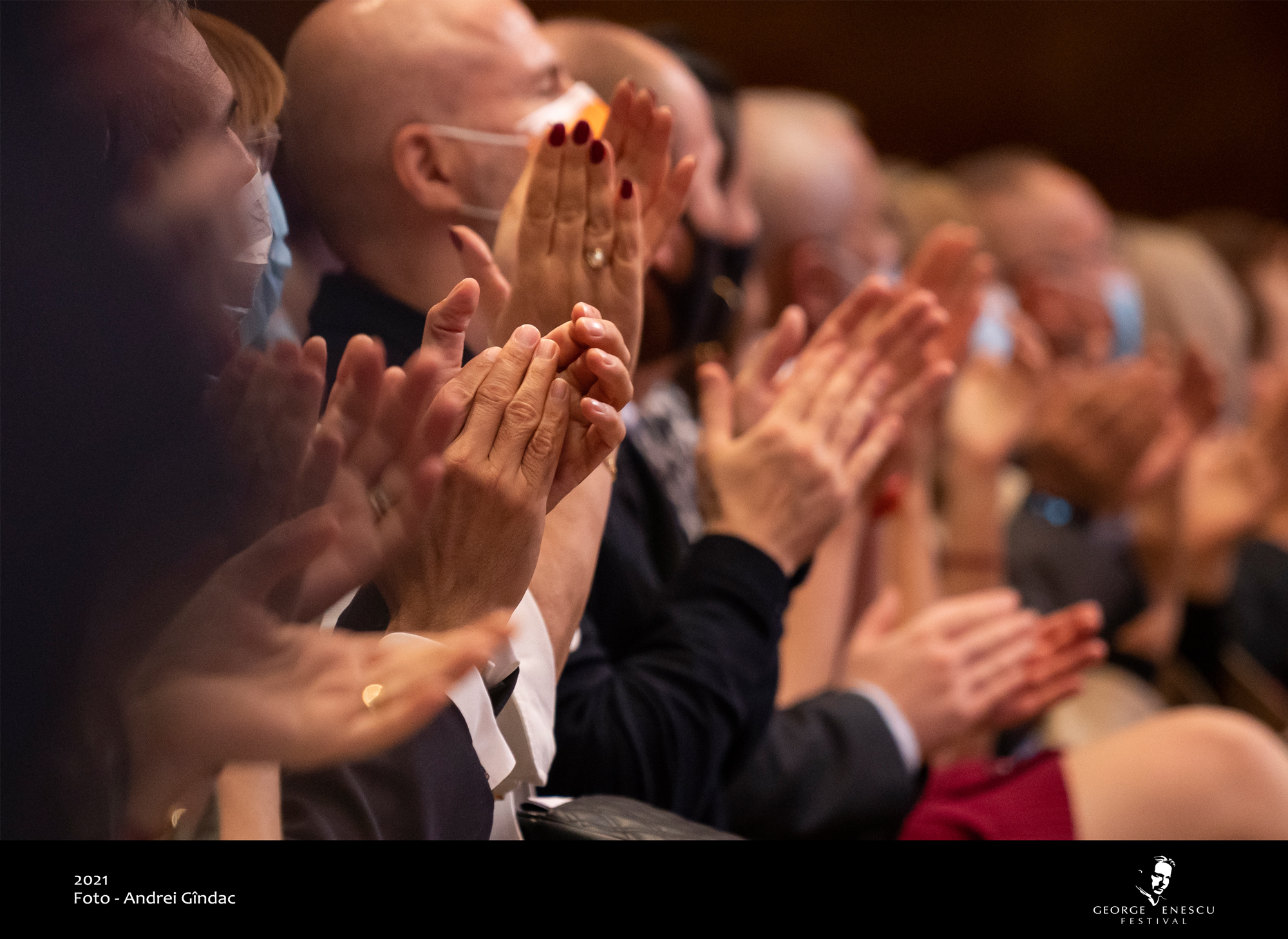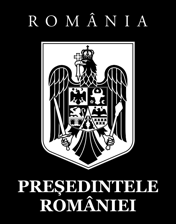Russian pianist – Daria Parkhomenko has been awarded the first prize at the piano section after an exquisite final round where she, alongside the other finalists (Daumants Liepins from Latvia, the winner of the second prize and Alexander Panfilov from Russia – winner of the third prize) performed accompanied by the George Enescu Philharmonic Orchestra conducted by Vassily Sinaisky. With a determined and shining stage presence, she was the second of the three finalists to perform one of the most challenging, feared and complex piano pieces, arguably in the whole history of music: Rachmaninoff’s piano concerto no 3, op 30.
While everybody was waiting for the jury’s decision, rumour had it among the audience that she had been the most ‘Rachmaninoffian’ of the performers in this high-level final, managing to find the right fine balance between a certain lightness of interpretation and that powerful, somehow heavy feeling characterising the music of that Russian late Romantic, whose vision about musical interpretation was that it “demands something of the creative instinct”, and that it absolutely needs to have a lot of colour. Parkhomenko’s performance was full of not just technical virtuosity but also lots of colour nuances, all seemingly in an effortless, intimate conversation between herself and her favourite composer.
You won the Enescu Competition, Piano Section, playing what is considered by many reputed musicians one of the most challenging works for piano. How does this combination of the first prize, Rachmaninoff and, on top of that, a highly difficult part feel for you?
It always makes me happy to play such complex and difficult works. In fact, I can concentrate even better when I perform for a big audience during a competition.
How did music enter your life and what is your current professional path?
I began to study the piano when I was 4 years old. My older sister was visiting a music school, my mother brought me there later as well, so I got to meet one of my great teachers, Sergey Uspenko. Now I live and study in Germany, with professor Stepan Simonian. I’ve had several high-level teachers, who have given me great inspiration and shaped me very much.
Who is your favourite composer at this moment?
Undoubtedly Rachmaninoff. Although he left Russia very early, in each piece of his I can feel his constant longing to be home, in Russia. I love the Russian spirit in his music! There are always so many different emotions and colours in everything he wrote. You can find both a dark and a light spirit there. For me, that music is always very warm, it speaks powerfully to the audience, from heart to heart.
And second to him?
I couldn’t say… Rachmaninoff is really my love now. I feel his music like my own.
Have you had encounters with Enescu’s piano music before this competition that bears his name?
Yes, I had listened to some of his works before this competition. His Suite no 2 for piano was the first piece I played in this competition, that was a first for me in terms of playing. I would really like to play more of Enescu, his orchestra works for piano or the piano sonatas.
What motivates you at this point in your career?
I strive to constantly improve with every next performance, but also to keep enjoying to make music.
How does a “successful concert” feel for you?
For a good performance I think it’s best not to practice too much, at times. I try to find various sources of inspiration for each time I play, but not through over-practising. That takes a toll on you.
If tomorrow you could be granted any pianistic wish, what would you like?
Certainly would be to perform at the Elbphilharmonie in Hamburg, where I live now!
